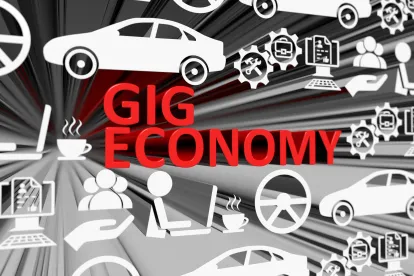The California Labor Commissioner’s Office has challenged Uber and Lyft in two new state-backed lawsuits that allege that the companies have engaged in “wage theft” by misclassifying their drivers as independent contractors. Filed in Alameda County, the suits are the most recent effort to enforce A.B. 5, which arguably caused a sea change in the analysis governing whether a worker should be classified as an employee or independent contractor.
A.B. 5 codified the ABC Test, subject to a number of exceptions. In doing so, it directly impacted the business models of many gig-economy companies, like Uber and Lyft. To comply with A.B. 5, many of these emerging companies may have to reconfigure their business model and reclassify hundreds, if not thousands, of independent contractors as employees. Uber and Lyft balked and did not reclassify their workers.
In its lawsuits, the California Labor Commissioner seeks to prove that Uber and Lyft have misclassified their drivers as independent contractors under A.B. 5, based on the allegations that:
(a) their drivers are not free from Uber and Lyft’s direction and control in how they perform their work insofar as the companies, among other things, regulate the drivers and types of cars that may be used, monitor and control driver performance through passenger feedback, and retain the right to terminate a driver’s tenure;
(b) their drivers are engaged in Uber and Lyft’s usual course of business of providing on-demand rides, in contradiction of the companies’ position that they serve only as data brokers who use their app to connect potential drivers and passengers together; and
(c) their drivers are not engaged in an established trade, occupation, or business independent from Uber and Lyft insofar as the drivers provide services and generate income only for the companies themselves, rather than their own independent businesses.
Should the California Labor Commissioner prevail, Uber and Lyft could be forced to reclassify their drivers as employees and could be liable for the lawsuits’ various alleged Labor Code violations, including those related to minimum wage, overtime, meal periods, rest periods, employment benefits, and unemployment insurance.
At the outset of the cases, the California Labor Commissioner also sought a preliminary injunction to force Uber and Lyft to reclassify their drivers as employees prior to any formal judgment determining that the companies had in fact violated A.B. 5. This month, the Court granted the injunction, commenting, “if the injunction the People seek will have far-reaching effects, they have only been exacerbated by Defendants’ prolonged and brazen refusal to comply with California law.” Uber and Lyft immediately requested that the Court stay the implementation of the injunction pending their appeal, which the Court declined to do. Last week, however, a California Court of Appeal granted the companies an emergency stay of the lower court’s order, allowing Uber and Lyft time for their appeal. duress.
The lawsuits have also generated criticism from some drivers and public debate about potentially significant practical implications. Uber and Lyft have threatened to cease operations in California. Several drivers have also spoken out against the Labor Commissioners’ actions, raising concerns about how the lawsuit might impact both driver freedoms and employability. These questions were not ignored by the lower court’s preliminary injunction ruling, noting that, “[t]he Court does not take lightly Defendants’ showing that a preliminary injunction may also have an adverse effect on some of their drivers, many of whom desire the flexibility to continue working as they have in the past, and may have commitments that make it difficult if not impossible for them to become full-time employees”. What effect, if any, they have on appear remains to be seen.
Presumably, other gig-economy companies are watching these cases closely. Prominent companies, like GrubHub, largely rely on similar app-based driver business models, that hinge on flexible independent contractors in order to provide quick and cost-efficient delivery of fast food and groceries directly to consumer homes. Should the California Labor Commissioner’s suits against Uber and Lyft prevail, these other companies may be subject to similar lawsuits that may impact their ability to operate successfully in California.
Whatever the ultimate outcome of these lawsuits, employers may still face a murky future. This is because Californians will be asked to vote on Proposition 22 on the November ballot. Prop. 22 would exempt app-based drivers from A.B. 5 who either: (a) provide delivery services on an on-demand basis through a business’s online-enabled application or platform; or (b) use a personal vehicle to provide prearranged transportation services for compensation via a business’s online-enabled application platform. In addition, Prop. 22, would also include additional protections to app-based drivers, ranging from the limited provision of certain benefits to increased compensation for certain drivers. If successful, the ballot initiative would likely stop the California Labor Commissioner’s lawsuits altogether.



 />i
/>i

